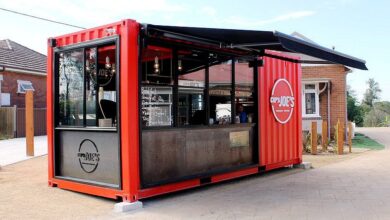Top features every hotel website should have to enhance guest experience and boost bookings

In an era where digital presence is crucial, hotel websites play a pivotal role in shaping the guest experience and driving bookings. A well-designed hotel website is not just a digital brochure but an interactive platform that can significantly influence a guest’s decision-making process. Whether it’s the aesthetics, usability, or the depth of information provided, every aspect of hotel web design can impact the overall performance of a hotel’s online presence. This article delves into the top features that every hotel website should integrate to enhance guest experience and boost bookings.
Intuitive navigation
User-centric design
A user-centric design is fundamental for hotel websites. The ease with which visitors can navigate through a site determines their overall experience. A clutter-free, well-organized layout with clearly marked menus and submenus ensures guests can find the information they need quickly and effortlessly. Hotel web design should prioritize simplicity and intuitive navigation to make the booking process straightforward.
Search functionality
A robust search functionality allows potential guests to find specific information without scrolling through endless pages. This feature is particularly useful for large hotel websites with multiple properties or extensive amenities. An advanced search option that includes filters for dates, room types, pricing, and special offers can significantly enhance user experience.
High-quality visuals
Professional photography
High-resolution, professional photography is indispensable for hotel websites. Pictures of the hotel’s exterior, rooms, amenities, and surrounding areas help guests visualize their stay. Quality images can convey the ambiance and standard of the hotel, making it more appealing to potential guests.
Virtual tours and videos
Virtual tours and videos offer a more immersive experience. These features allow guests to explore the hotel in greater detail, providing a sense of familiarity and reassurance. Incorporating 360-degree tours or drone footage can set a hotel website apart from competitors, adding a dynamic element to the virtual experience.
Comprehensive information
Detailed room descriptions
Every hotel website should offer detailed descriptions of room types, including amenities, size, views, and any special features. This information helps guests make informed decisions based on their preferences and needs. Clear, concise descriptions paired with quality images can significantly boost bookings.
Local attractions and activities
Providing information about local attractions, events, and activities can enhance the guest experience. Hotel websites can include blogs, guides, or interactive maps that highlight popular destinations, dining options, and cultural experiences in the vicinity. This added value can sway a guest’s decision to book a stay.
Seamless booking system
Direct booking engine
A seamless booking engine is the backbone of successful hotel websites. It should be easy to use, secure, and integrated directly into the site. The booking process should require minimal steps and provide instant confirmation. Offering best rate guarantees and exclusive deals for direct bookings can also encourage visitors to book through the hotel’s website.
Mobile optimization
With the increasing number of travelers using mobile devices to book accommodations, mobile optimization is crucial for hotel web design. A responsive design ensures that the website functions smoothly on smartphones and tablets, providing a consistent user experience across all devices. Mobile-friendly booking systems can significantly increase conversions.
Guest reviews and testimonials
Social proof
Displaying guest reviews and testimonials can build trust and credibility. Potential guests are more likely to book a stay if they see positive feedback from previous visitors. Hotel websites should integrate reviews from reputable sources and encourage guests to leave their own testimonials.
Interactive features
Interactive features such as star ratings, comment sections, and review filters can enhance the guest experience. Allowing guests to sort reviews by date, rating, or specific keywords helps them find relevant information quickly. These features not only build trust but also keep users engaged on the site.
Personalization and special offers
Customized experiences
Personalization is a powerful tool in hotel web design. By using data analytics and customer insights, hotel websites can offer tailored experiences. This can include personalized recommendations, targeted promotions, and customized content based on a guest’s previous interactions with the site.
Exclusive deals and packages
Offering exclusive deals and packages can entice visitors to book directly through the hotel website. These can include discounts for early bookings, last-minute deals, or special packages that bundle accommodations with meals or activities. Highlighting these offers prominently on the site can drive more conversions.
Enhanced communication channels
Live chat support
Live chat support is becoming increasingly popular on hotel websites. This feature allows guests to get immediate answers to their questions, whether it’s about availability, amenities, or booking procedures. Live chat can significantly improve the user experience by providing real-time assistance.
Contact information and social media integration
Easily accessible contact information and social media integration are essential. Hotel websites should prominently display phone numbers, email addresses, and social media links. This not only makes it easy for guests to reach out but also enhances the hotel’s digital presence. Social media integration allows guests to engage with the hotel on multiple platforms, fostering a sense of community.
Security and trust signals
SSL certificates and payment security
Security is a paramount concern for online transactions. Hotel websites must ensure that all booking and payment processes are secure. SSL certificates, secure payment gateways, and clear privacy policies help build trust and protect guest information.
Trust badges and certifications
Displaying trust badges, certifications, and affiliations with reputable organizations can further enhance credibility. These signals reassure guests that the hotel adheres to industry standards and best practices, making them more likely to book with confidence.
Accessibility features
Inclusive design
Accessibility is a critical aspect of hotel web design. Ensuring that the website is usable by people with disabilities is not only a legal requirement but also a moral obligation. Features such as screen reader compatibility, keyboard navigation, and text resizing options make the site more inclusive.
Multilingual support
Catering to an international audience requires multilingual support. Hotel websites should offer content in multiple languages to accommodate guests from different regions. This feature can significantly broaden the hotel’s reach and appeal to a global market.
Analytics and performance tracking
Data-driven insights
Analytics tools are essential for monitoring the performance of hotel websites. These tools provide data on user behavior, traffic sources, conversion rates, and other key metrics. By analyzing this data, hotels can identify areas for improvement and optimize their web design and marketing strategies.
Continuous improvement
The digital landscape is constantly evolving, and hotel websites must adapt to stay competitive. Regular updates, A/B testing, and user feedback can help hotels refine their online presence. Continuous improvement ensures that the website remains effective in enhancing guest experience and driving bookings.
Incorporating these features into hotel web design can significantly enhance the guest experience and boost bookings. Hotel websites are not just online brochures; they are dynamic platforms that play a crucial role in a hotel’s success. By prioritizing intuitive navigation, high-quality visuals, comprehensive information, a seamless booking system, guest reviews, personalization, enhanced communication channels, security, accessibility, and performance tracking, hotels can create an engaging and effective online presence.




